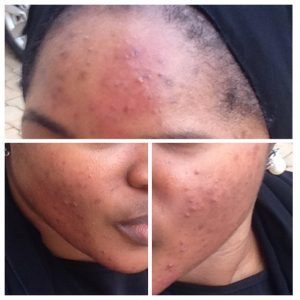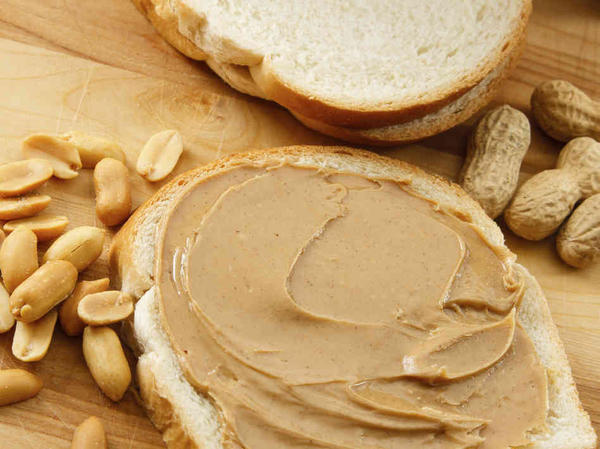 According to research, the truth is that zits, acne, and blackheads can be caused by several reasons; diet is just one of them. Research has proven that diet has nothing to do with acne formation or acne treatment. However, excessive intake of some foods may worsen acne breakouts and sabotage your acne treatment. Before understanding whether or not there is a connection between roasted peanuts and acne, it is important to understand what causes acne breakouts.
According to research, the truth is that zits, acne, and blackheads can be caused by several reasons; diet is just one of them. Research has proven that diet has nothing to do with acne formation or acne treatment. However, excessive intake of some foods may worsen acne breakouts and sabotage your acne treatment. Before understanding whether or not there is a connection between roasted peanuts and acne, it is important to understand what causes acne breakouts.
Acne breakouts can be caused by a variety of reasons, and mostly they are related to your genetic disposition. Breakouts can also form because of the effects of hormones on the sebaceous glands. Hormonal imbalance can be caused by certain foods, excessive alcohol consumption, and prescription drugs. This imbalance stimulates the sebaceous glands to secrete excess oils, clogging pores in the skin, and resulting in zits.
The health benefits of peanut butter include a reduced risk of diabetes, heart diseases, cancer, degenerative nerve diseases, and control of Alzheimer’s disease. It also helps in decreasing hypertension and the risk of contracting viral and fungal infections.
Peanut butter is a paste made from dry, roasted peanuts. This paste is generally used as a spread on toast or sandwiches. It is a healthy food that is full of nutrients such as proteins, carbohydrates, monounsaturated fatty acids, folate, niacin, pantothenic acid, pyridoxine, riboflavin, thiamin, vitamin E, vitamin C, vitamin A, sodium, magnesium, calcium, manganese, phosphorous, selenium, copper, iron, and zinc.
Peanuts, a type of ground nuts, belong to the family of Fabaceae and species of Arachis hypogaea. The plant itself is small in which the branch of the flower touches the ground and grows underneath. The plant is thought to have originated in the American continent and through Spanish travelers, it was spread all over the world. Unlike costly nuts such as cashew nuts, pistachio nuts, almonds, and walnuts, peanuts are low-cost nuts that offer similar benefits.
Interesting Facts about Peanuts and Peanut Butter
Peanut butter comes in two popular varieties. One is a creamy variety and the other is crunchy. While women and children generally love the creamy variety, men prefer the crunchy variety.
The first commercial preparation of peanut butter was in the United States in 1884.
According to an estimate by Kansas State University, the amount of peanut butter consumed by the United States alone in one year is enough to spread across the floor of Grand Canyon.
There are 10 peanut holidays observed in the United States.
Thomas Jefferson and Jimmy Carter, who were both elected Presidents of United States, were initially peanut farmers.
Nutrition Facts About Peanuts & Peanut Butter
People who consume peanuts and peanut products on a regular basis have an overall higher intake of protein, fats (polyunsaturated and monounsaturated), fiber, vitamins A and E, folate, calcium, magnesium, zinc, iron, potassium, and many other nutrients. Peanuts contain no saturated fats and can be consumed on a regular basis. They only contain unsaturated fats. This is good news for people who fear to gain weight by consuming peanuts. Peanuts actually help you to lose weight!
Health Benefits Of Peanut Butter
Apart from its great taste, peanut butter has vital nutrients that are essential for the body. The health benefits of this tasty butter include the following:
Rich Source of Protein
Peanut butter (100 grams) contains a high amount of protein (25 – 30 grams). Proteins that we eat are broken down into amino acids, which are then utilized in each and every cell for repairing and building the body.
Lowers Cholesterol Levels
The fat content in peanut butter is almost equal to that of the fats found in olive oil. It contains both polyunsaturated fats and monounsaturated fats. As these fats are not saturated, they are good to consume without putting the heart at any risk. The unsaturated fats in peanut butter help to lower bad cholesterol levels (low-density lipoprotein) and promote the circulation of good cholesterol (high-density lipoprotein).
Prevents Type II Diabetes
Consuming peanut butter can also be beneficial in reducing the risk of type II diabetes. Peanuts contain not only protein but also unsaturated fats. Unsaturated fats have been noted to improve insulin sensitivity. Research into peanut butter consumption and diabetes showed that a higher intake of peanut butter and other nuts lowers the risk of type II diabetes.
 Good Source of Vitamins
Good Source of Vitamins
Peanut butter contains many vitamins that are good for our body to function properly. Vitamin A found in it is helpful for eyesight, while vitamin C helps to boost the immune system and heals simple ulcers faster. On the other hand, the vitamin E found in peanut butter is a very important micronutrient needed by our body to dissolve complex fatty acid structures and fat blockages in the arteries.
Antioxidant Properties
Peanut butter contains antioxidant properties due to the presence of folate, niacin, pantothenic acid, pyridoxine, riboflavin, and thiamin. One of the antioxidants found in it is resveratrol. Resveratrol is a polyphenolic antioxidant which has been found to be effective in controlling certain types of cancers, heart disease, Alzheimer’s disease, viral and/or fungal infections, and degenerative nerve diseases.peanutbutterinfo













